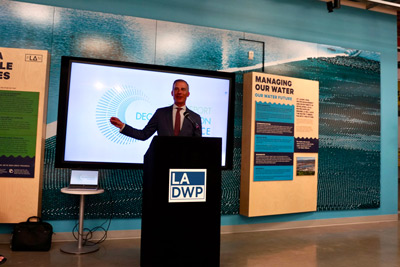The Transport Decarbonisation Alliance (TDA) was launched in 2018 as a unique collaboration to accelerate the worldwide transformation of the transport sector towards a net-zero emission mobility system before 2050. The TDA is part of the 12 commitments made at the One Planet Summit hosted by President Emmanuel Macron in Paris, France in December 2017.
– Events –
 TDA Annual Meeting
TDA Annual Meeting
UC Berkeley Center for Law, Energy and the Environment (CLEE) along with the California Air Resources Board have organized and executed the TDA Annual Meeting since 2022. This event brings together researchers, policymakers, innovators, manufacturers, and financiers, focusing on multi-national, national, subnational, and local transportation decarbonization initiatives and opportunities for coordination. The meeting also features opportunities to plan TDA activities for the coming year, including for the United Nations Conference of Parties (UN COP) and other member events around topics, such as infrastructure investments and heavy-duty zero-emission vehicles.
– Publications –
May 2024
 This factsheet series is intended to help address some of the most common questions related to zero emission trucks and the supply side regulations that accelerate their deployment. The documents evolved from a 2023 New York Climate Week workshop CLEE hosted on behalf of California’s presidency of the Transport Decarbonisation Alliance. The Roundtable: Accelerating Global Collaboration on Zero Emission Trucks brought together over 70 policy-makers, experts, and industry stakeholders from around the world. It featured seven topic-specific table discussions, with the goal of collectively describing the evidence to address the top questions stakeholders and policymakers have about zero emission trucks and supply-side truck regulations. The Roundtable’s conversations and the subsequent policymaker interest inspired these factsheets.
This factsheet series is intended to help address some of the most common questions related to zero emission trucks and the supply side regulations that accelerate their deployment. The documents evolved from a 2023 New York Climate Week workshop CLEE hosted on behalf of California’s presidency of the Transport Decarbonisation Alliance. The Roundtable: Accelerating Global Collaboration on Zero Emission Trucks brought together over 70 policy-makers, experts, and industry stakeholders from around the world. It featured seven topic-specific table discussions, with the goal of collectively describing the evidence to address the top questions stakeholders and policymakers have about zero emission trucks and supply-side truck regulations. The Roundtable’s conversations and the subsequent policymaker interest inspired these factsheets.
These factsheets aim to acknowledge valid concerns, put challenges and benefits into context and summarize evidence, case studies, and best practices that collectively describe a path forward. The primary intended audience is policymakers looking to meet climate goals by supporting a transition to zero emission medium- and heavy-duty vehicles and are considering supply-side regulations.
Read the factsheet series here: Zero-Emission Trucks: A Factsheet Series
November 2022
For more information, or inquiries on membership and collaboration, contact Lidiya Kassahun and Ethan Elkind.

